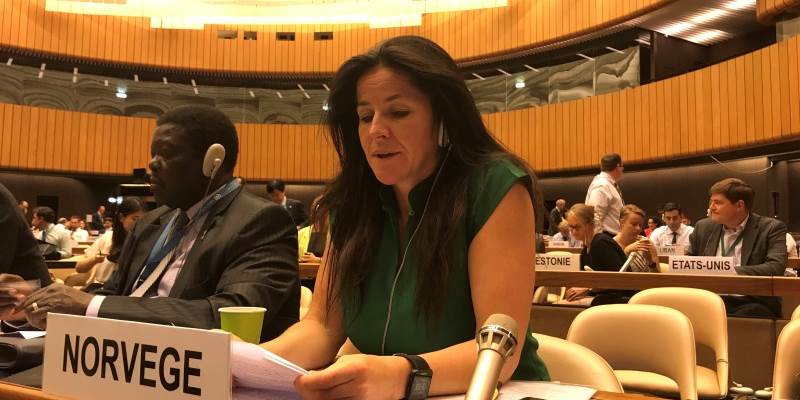Check against delivery.
Mr. President, Secretary-General, Excellencies.
The scale and complexity of today’s humanitarian crisis are unprecedented.
We must step up our collective efforts on several fronts. We support the Secretary- General efforts to reform the UN, strengthen international cooperation and promote partnerships that will deliver more sustainable solutions for the millions of people affected by humanitarian crisis.
Let me emphasize seven points of particular importance.
First, more humanitarian funding is urgently required. The humanitarian appeals are chronically underfunded. Norway has responded by increasing the humanitarian budget by more than 50% in the last four years. We are deeply concerned by the devastating levels of food insecurity in Yemen, South Sudan, Somalia and Lake Chad region. In total we have committed well over 100 million USD. This includes an additional contribution to the four crisis approved by Parliament today.
In addition, Norway is a one of the largest contributors to the UN Central Emergency Fund (CERF) which plays a critical role in the response to the famine crisis. CERF is currently facing an acute funding shortage, and we urge everybody to see what more they can do to support the lifesaving actions of the CERF in this time of great need.
Second, parties to a conflict must allow and facilitate rapid and unimpeded passage of humanitarian relief. The international community must univocally condemn and take effective measures against attacks on health care. ICRC’s initiative Heath Care in Danger’ should be universally supported. We must intensify our efforts to implement Security Council Resolution 2286, including by putting in place the requisite legal and operational measures. Norway is committed to the Secretary-General’s recommendations on implementing resolution 2286. We call on all member states to express the same commitment.
Third, we must fulfill our responsibility to protect children from armed conflict. This includes protecting schools, universities students and teachers from attack. We urge all states to join the Safe Schools declaration, now endorsed by 66 states.
Fourth, we must ensure that the safety and human rights of women and children are respected. This should be an integral and prioritized dimension in humanitarian responses. We need to promote participation of women and women’s organizations, and step up efforts to combat sexual abuse and gender-based violence.
Fifth, we must continue to increase the effectiveness of humanitarian assistance and place people at the center our response. We see the Grand Bargain as an opportunity to do that. Norway is already doing a lot of what the Grand Bargain calls for, such as flexible funding and multi-year commitments. This enables a more predictable, adaptive and cost effective humanitarian response.
We are also committed to the scale up of cash in humanitarian assistance and will work with our partners to ensure better coordination. Cash matters because it can empower affected people by giving them choice in determining what they need the most, support economic recovery and connect humanitarian and development instruments and approaches. It is also more cost effective – meaning more beneficiaries and assistance per dollar spent.
Sixth, we cannot achieve the 2030 Agenda for Sustainable Development without increasing our efforts to reach those left farthest behind: refugees, internally displaced people, women and girls, children and people with disabilities. This is an important message in Norway’s new White Paper on Sustainable Development.
Stronger partnerships between host communities, the UN system, the multilateral development banks and civil society are critical. The commitment to a New Way of Working that brings greater coherence across the UN humanitarian and development interventions while respecting the humanitarian principles was an important outcome of the World Humanitarian Summit. This will support resilience and recovery, and more effectively address the challenges of protracted displacement.
The Comprehensive Refugee Response Framework is a prime example of operationalizing these principles. We look forward to the Solidarity Conference in Kampala as stepping stone toward further strengthening these principles and paving the way for the adoption of a robust global compact on refugees in 2018.
The Education Cannot Wait fund, which was launched at the World Humanitarian Summit is another example of a concrete initiative that promotes greater coherence across humanitarian and development interventions and fosters new public-private partnerships.
Finally, working differently also means reinforcing local and national capacity to respond to humanitarian crisis. Norway supports capacity strengthening of local and national actors through many different instruments and funding channels, both on the humanitarian and development side. This includes support to UN’s humanitarian country-based pooled funds and the Red Cross/Red Crescent movement. We encourage all our humanitarian partners to work in a way that reinforces that rather than replaces local and national capacities whenever possible.
Thank you.
